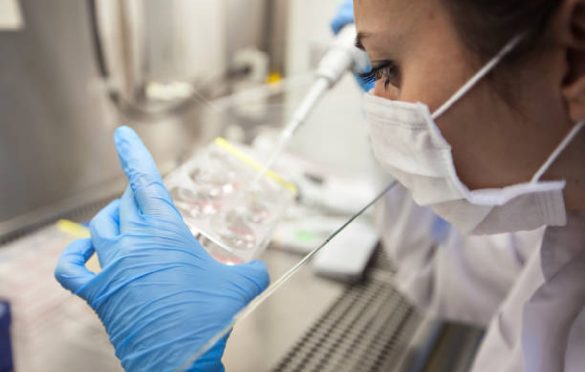Reproductive Health and Infertility in Modern Society

Children are a vital part of the family and society. They may come easy to some families, but for others, getting pregnant can be an impossible task. Infertility, the inability to bear children, can cause emotional distress to any couple, and to beat it, you first need to understand what infertility is and how it can be treated.
Table of Contents
What Is Infertility?
Infertility is the inability to conceive or impregnate due to a disease impairing the reproductive system’s normal function. Both men and women can suffer from infertility. Although numerous reproductive fertility news and articles exist, you need to get a specialist for an official diagnosis.
The Causes of Infertility
Infertility in general is typically not hard to diagnose because it is easy to tell when you can’t get pregnant; however, finding the reason behind your inability to have children may take time and resources.
Some people never find out the true reason behind their infertility. However, those that do discover that it is caused by one of the following.
- Low or no production of sperm– This can be caused by trauma to the testicals, heavy alcohol use, smoking, and anabolic steroids.
- Cancer treatments– Certain types of chemotherapy radiation or surgery to remove affected parts may affect the reproductive health of both men and women. Other treatments like neuroleptic medication, spironolactone, and non-steroidal anti-inflammatory drugs may also affect fertility. Always confirm with your doctor about the potential side effects of the medication before starting a dose.
- Low or no production of ova– A diminished ovarian reserve can cause infertility issues because the woman can run out of eggs or not respond to fertility treatments because there are simply no eggs to mature.
- The pituitary gland and hypothalamus dysfunction – The improper function of the pituitary gland and hypothalamus affect hormone levels in the body which in turn affect the functioning of the ovaries.
- Premature menopause- Some women may go through menopause at an early age, sometimes as early as 20, which renders them unable to have children of their own.
- Reproductive system diseases like PCOS or endometriosis– Many conditions affect a woman’s reproductive system.
- Genetic disorders– These are pass on down from generation to generation. Conditions such as Klinefelter’s syndrome, myotonic dystrophy, and microdeletion may all result in infertility.
- Sterilization– Some people may have undergone sterilization in the past, which will hinder them from having children.
It is important to speak with your fertility specialist or primary care doctor to discover why you may find it hard to conceive.
When Should You Seek Help From a Specialist?
Your doctor will most likely advise younger couples to seek help after a year of trying to conceive with no success. Older couples should get help from a fertility specialist after about six months of trying.
Modern society has come up with numerous ways to cater to the needs of people dealing with infertility. Thanks to these advancements, you can now get medical help, social support, and anything else you may need at pocket-friendly prices.
Reproductive Fertility Q&As
Is infertility curable?
In most cases, infertility can be managed once a fertility specialist identifies the underlying cause. With the right medication and expertise, over 90% of infertility cases successfully conceive.
Does insurance cover fertility treatments?
Not all health insurance covers fertility treatments — and many do not at all. The extent of the coverage may vary, which is why you should consult your insurance provider for further details.
Why am I not responding to fertility treatments?
There are many reasons why your body may not respond positively to different fertility treatments. The reason depends on your unique medical history, the specific type of treatment you are receiving, and your goals. Consulting a fertility specialist is the best way to determine why your body is resistant to different drugs.
Is genetic testing important?
You may want to get a genetic test on yourself or your child. The most common type of genetic testing in the fertility specialty is preimplantation genetic testing. This ensures the embryo is viable in all aspects before implanting. If genetic factors cause your infertility, your doctor may recommend genetic testing to confirm the reason behind your infertility.
Can I store my eggs or embryo in a different country?
Yes, you can. Some countries offer cheaper rates for storing eggs compared to others. It is up to you where you want to store your eggs. A word of caution, you should educate yourself on the local laws and policies governing the harvest and storage of eggs or embryos to avoid legal snags in the future.


